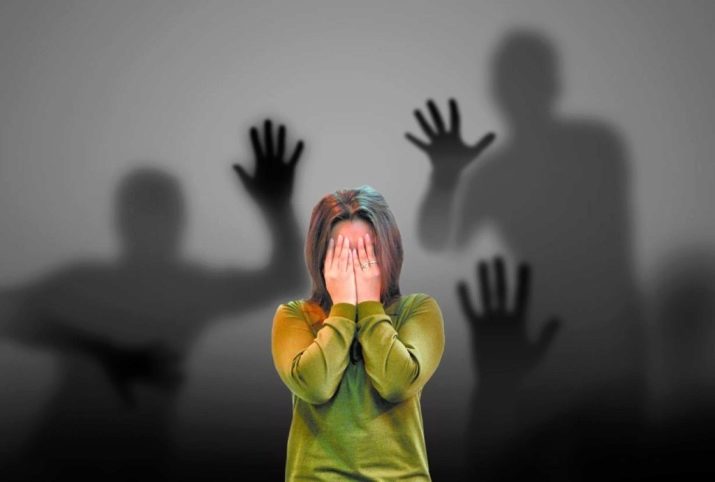How often we use the phrase: "They are crazy!". And we do not even think that this expression can cause unpleasant feelings and even fear in some people. And all because there are individuals who are very afraid of losing their sanity. A phobia that manifests itself in a mild form is not a disease, but it is necessary to pay attention to this problem in time and begin to fight it.
What it is?
Ordinary people are afraid of any disease. This is quite normal fear. Most of us feel terrified at the thought of losing control of ourselves. And this is also not something out of the ordinary. The main thing is that this fear does not become permanent.
A sensible person who reports to his actions and is responsible for his actions is afraid of losing his status and becoming completely helpless in terms of social adaptation. The same person may be aware that the disease does not select people by status or by well-being. Therefore, we all understand that everyone can lose their mind. From here comes the development of phobias.
True, we need to make a reservation: not every one of us can think about this problem all day long. A very small part of people is experiencing a really strong fear of going crazy. The greater one, with a more stable psyche, tries not to think about it.
No wonder such a disorder is not under the psychiatric nature, but more psychological. That is why it is not included in the list of serious diseases that the international community has established. And all because this phobia may indicate that a person has certain reasons for developing anxiety. That's how they are separated.
Socio-cultural. They occur when a person has various psychoemotional pressures in life. Occupational risk-related activities can also lead to such a condition. If you add to this dependence on someone else's opinion, then progress in the development of a phobia becomes inevitable. Separately, it should be noted genetic predisposition. And when a person knows that his close relative suffered from insanity, the fear of repeating the fate of a sick relative can grow and turn into panic attacks.
Personality traits of character. People who have increased anxiety, lack of confidence in their abilities, a tendency to depression and stress, may be afraid of insanity.
It must be remembered that the fear of insanity refers to psychogenic disorders. They can lead to mental health problems. Psychologists say: if a person is prone to such an obsessive state, then he already has mental abnormalities.
Causes
Often, neurologists define a disease as vegetovascular dystonia (VVD). This diagnosis is known for its multifaceted symptoms and belongs to a group of other diagnoses. Pathological changes in the vegetative system lead to the fear of going crazy. And in this case, the phobia can have a real threat to health.
Vegetika is not amenable to therapy. In order for the patient to stop thinking about his phobia, you need to find a specific reason after which he can forget about fear.
Human fears and panic attacks are intertwined. The emergence of such conditions leads to the fact that the individual begins to fear becoming crazy. The personality disorder syndrome involves panic attacks.It turns out that the patient cannot get out of these weaves. Then he has a fear of harming others. He is increasingly moving away from social life, and the process becomes completely irreversible.
And all this comes from the fact that the newly begun attack of fear becomes unlike the previous one. A person loses control of himself, and only specialist help, which must be rendered in time, is able to save him from a psychiatric illness.
With neurosis, there is also a fear of losing one's sanity. People fear losing control, and this fear provokes even more fear. And then the following conditions may occur: post-traumatic, acute or chronic stress, neurasthenic syndrome, hypochondria, obsessive-compulsive disorder, generalized anxiety disorder (numerous phobic disorders).
And then a frequent obsessive state, in which there is no logic, can begin. The person is well aware that he is doing the wrong actions, but he cannot resist them. And after that he convinces himself in his madness.
The ambiguity (that a person has certain mental disorders) causes a condition called hypochondria. People with this condition spend considerable effort on treatment. They sincerely believe that they have deviations. And even when they are told that they are completely healthy, they continue to believe in their illness, justifying it by the fact that doctors are mistaken and simply cannot make a correct diagnosis.
This disorder requires long-term treatment in a hospital.
Patients with a diagnosis of schizophrenia are subject to physical impairment. At the initial stage, the individual is still a little bit, but he understands that something is wrong with his consciousness. For example, when auditory hallucinations begin, the patient can distinguish real sounds from contrived ones. Then the fear of committing an insane act aggravates the course of the disease.
When anxiety goes mad, the clinical course of schizophrenia begins, which is expressed in episodic-progressive form. Then there may come enlightenment when a person fully understands that something wrong is happening to him. And it further enhances fear. However, the individual does not understand that he has already lost his mind.
Often there are cases when social causes can cause fear to go insane: emotional or physical overload, fatigue, tension in personal life and at work.
People who are very busy, do not have sufficient livelihoods are prone to phobias to lose their mind. As a result, a person becomes depressed, and this only aggravates his situation. Attention decreases, memory becomes weaker, and mental processes slow down.
These somatic disorders lead to the thought of his insanity. If you do not get rid of this state, then there are further suicidal tendencies.
To overcome a condition called dyspsycho-phobia, you need to start conducting courses of psychotherapy. Rehabilitation actions, such as outdoor recreation, a trip to the sea or complete relaxation at home, will contribute to the removal of a person from this state.
Induced delusional disorder is expressed in the emotional relationship between very close people, when an individual, having a certain mental illness, tries to transfer it to a close person. In response, his completely healthy relative tries to find an excuse for such behavior. In the end, both people begin to think the same way. So is the joint overcoming of fear not to go crazy. When both start treatment, the adequate relative returns to normal much faster, and the patient continues the treatment.
How to fight?
Win a phobia can be quickly only when the person himself is aware of his condition and begins to show willpower.It is difficult to overcome neurosis on your own. It will help psychologists and psychotherapists using the following methods:
- psychoanalysis is an obligatory link, a person must independently realize the reason for his fears;
- hypnosis can be applied;
- cognitive therapy will also be effective;
- art therapy (art treatment);
- in a very neglected case will help drug treatment.
You can also suggest to act on the principle of "knocking fire with a wedge." We must try to give your fears the right to exist. In thoughts you can "turn" and consider any situation. It does not harm anyone, including you. So, imagine that you hurt a person or turned into a madman and run along the street naked. After that, it is necessary to conduct a study of your attitude to the events listed above.
If you become disgusted by the mere thought that such unpleasant events can happen to you, it means that everything is in order with your consciousness. And the analysis showed that you are a sensible person and you have absolutely nothing to fear.
Work with the subconscious
This practice will help remove the fear of losing control of yourself. Learn how to get rid of installations that bother you. They can be the following: fear of aggressive actions (you should not show your strength), fear of freedom (you need to endure, even if you don’t like something), fear of loneliness (please others in the hope of their favor), etc.
These installations will bring nothing good to life. Not without reason, even in a famous song, it is sung: “You should not bend over a changeable world.” In the end, you will not please everyone, but you can easily hurt your psyche and push yourself into depression. Under the fear of going mad, the denial of one’s Self hides in the first place. Remember that the wrong attitudes will contribute to this denial until you learn to say “no” to them.
Psychologists say that it is impossible to get angry inside for a long time. Such emotions should spill out. And if your will was suppressed due to circumstances beyond your control, then allow yourself to be angry a little.
Remember one rule: do not keep bad emotions inside yourself, then you will never suffer from phobias.
You will learn about the causes of mental disorder in the following video.



















